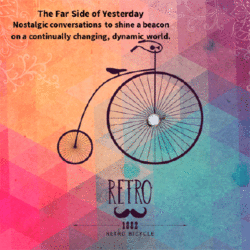I am honestly tired of pretending to be happy. It has become a societal neurosis, an obsession, a psychosis.
I just want the right to cry when I am sad and broken-hearted.
The push is always on to smile, as if it lying to the world about your state of mind were virtuous. Even the Catholic church extols a cheerful giver and they understand suffering.
The idea is that if we paint on a happy smile, we will not only fool the outside world but we will actually fool ourselves into becoming cheerful.
Hasn’t worked for me. If you have to tell someone to put on a happy face, they aren’t feeling it.
I am all for hard work, showing courage, stopping to help someone out of a tough, even life-threatening situation but I don’t always feel like smiling my way through it. It gives the wrong impression.
Although I see the strange logic, I don’t buy the concept that appearances are more important than thoughts, feelings and emotions. Feelings can be difficult, even impossible to control under some situations. Appearances are easily faked so using them to camouflage your true thoughts and opinions can be a quick fix and convenient distraction to prevent others from knowing the real you.
Fake it ‘till you make it has ruthless consequences when applied to the emotions.
Hiding the truth seems to be a high priority for a significant number of folks – at all levels and status- in society. Their rapid-fire smiles to the cameras flash and obscure the phony sentiments and promises. Sadly, this deceptive practice is as contagious as the measles and we have recently been reminded of what that can do.
To evaluate how ubiquitous this fixation with happy faces is, step inside a book store and check out the self-help section. It is deluged with books on positivity, optimism, cheerfulness, how to be happy, live happy, find happiness and one called Always Behave Cheerfully. You need to hire a detective to find a volume embracing misery.
This is not to say that there are no spontaneously, freely and legitimately happy, cheerful people. God has blessed many with this gift.
That still does not qualify happiness as a virtue because a virtue is some act or response that we deliberately choose even when it is contrary to our feelings. Patience is a virtue because one can respond patiently even if feeling impatient. We are not telling a lie about our feelings.
On the contrary, if you pretend to be happy, you are lying to the people around you about your feelings. Forcing a smile through tough times is not living honestly. We cannot reach out to the sadness in others if we are masking our own needs.
My underlying rejection of pretending to be OK when I am not, is that it is an admission that I don’t trust you and I don’t think you are responsible enough to cope with my true feelings.
I know how dangerous this can be because I have tried to seal my fragile heart with pretended smiles and assurances that there is nothing wrong. I thought I was protecting myself but it also kept the ones I loved at arms-length. At this point, I will not accept a relationship with someone whose smile is a way to lead me on, manipulate or use me.
I want something special and profound in my life with someone I can truly connect with.
I may be soft on the outside, but
inside I am strong and dedicated to being true to myself.
Don’t interpret strong as harsh because I understand that it is difficult to
open up to or show compassion for another and we often fail. Knowing that, I am
eager to give others a chance to fail because in that I see someone willing to be
vulnerable. Vulnerability is both a gift and a risk that could make it easier
to commiserate with our neighbors and might even morph into empathy.
The Spanish philosopher Miguel de Unamuno saw expressions of pain exchanged
between two people as the great equalizer of humankind. He believed that deeper
connections could be made in wreckage than prosperity.
If we could learn to share in the unhappiness and despair of others and not
insist they wear a false smile on their face, we would have taken a step toward
creating a climate where we could trust and communicate with one another. A
place where Mr. Rodgers might live.
Profound human connection and communion – in other words, love – can be sabotaged
by false faces. An important key to unlocking love is to nurture honesty
instead of cheer.
Challenge the idea that happiness is a matter of attitude.
Let’s call this virtue honesty.


